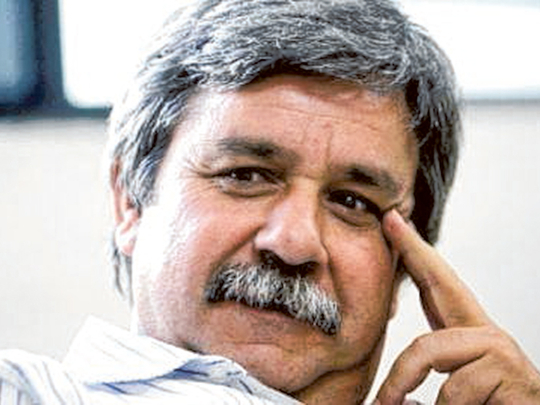
Beirut: Hanna Gharib, previously the head of the Union Coordination Committee and who was elected Secretary-General of the Lebanese Communist Party (LCP) in April, was buoyed by the party’s significant gains during the last municipal elections. A few days ago, Gharib engaged in a scathing attack against the country’s ruling political elites, claiming that an authoritarian class ruled Lebanon whose members ravaged whatever capabilities existed.
Gharib chastised the establishment, asserting that merchant-politicians were like locusts that destroyed everything in sight, relying on sectarianism to impose authority, and practiced dictatorship par excellence.
He declared that the time was ripe for the Lebanese—workers, teachers, farmers and the poor—to unite against what he identified as “exploitation” and pledged to “confront such challenges in collaboration with other leftist, progressive, and democratic forces.”
This was not the first time that Gharib uttered such pronouncements although his most recent diatribes accused elites of rampant corruption throughout the country.
“This capitalist class works on distributing banking and real estate wealth (among itself),” he affirmed, and “it is ruled by scandals every day, as well as (money) squandering, injustice, undermining people’s rights and tampering with people’s dignities.”
Some Lebanese agreed and, in what were shocking results, voted for communist party candidates during the most recent municipal elections. In fact, electoral lists in Bint Jbeil, Marja‘yun and Baalbek, all traditional Hezbollah strongholds, scored major victories that sent shivers down Hezbollah’s political spine.
Many wondered whether ordinary voters, including Hezbollah supporters, were determined to send the message of disapproval.
Of course, and like most other established parties, the LCP benefitted from various alliances that would have been impossible to imagine a few years ago, although that was the genius of the Lebanese, to enter into unimaginable alliances—simply to win, no matter the color of its participants.
Gharib used his May 1 address to attack what he perceived was ongoing confessional strife in Lebanon, as he urged workingmen and women to protest against exploitation. He said that the LCP embarked on a comprehensive process of change and renewal with the purpose of nation—building of what he termed “a secular democratic state simultaneously capable of waging resistance and achieving social welfare.”
It was unclear whether Gharib’s calls to get rid of corruption and nepotism, along with his pleas to parliament to adopt a uniform personal status law based on administrative decentralism and gender equity, would be realized.
Founded in 1924 by Yousuf Ebrahim Yazbek and Fouad Al Shmeli, the LCP lost most of its backing in the 1950s when it adopted pan-Arabism and both pro-Nasir and pro-Ba‘ath planks. Before the Civil War that permanently scarred Lebanon, and though the number of its adherents was relatively small—estimates varied between 3,000 and 10,000,—the LCP was eclipsed by the Progressive Socialist Party (PSP) leader Jamal Junblatt, the star of the left.
During the painful 1975-1990 period, the LCP witnessed something of a resurgence when Jumblatt, then Minister of the Interior, legalized the party in 1970, and then, after the charismatic Nicolas Shawi became Secretary-General in 1972, gained some traction. Party members participated in the fighting and aligned with the Palestinian coalition, even though its membership was mainly Christian, particularly Greek Orthodox and Armenian.
In 1987, together with the Druze-led PSP, the LCP fought against Amal militants in West Beirut, a conflict that was stopped by Syrian troops. That same year, the LCP experienced a power struggle when Karim Mroue, a Shiite, challenged George Hawi for the leadership post. Hawi prevailed but was assassinated on June 21, 2005 probably for his sharp criticisms of Syrian occupation.
Interestingly, the LCP was probably one of least sectarian Lebanese parties, which translated into a significant national presence. Beyond its limited membership, what the most recent municipal elections results demonstrated was that it stood as an alternative to established parties, including Hezbollah. The most recent results, unprecedented in the country’s political memory, illustrated a groundswell for change











